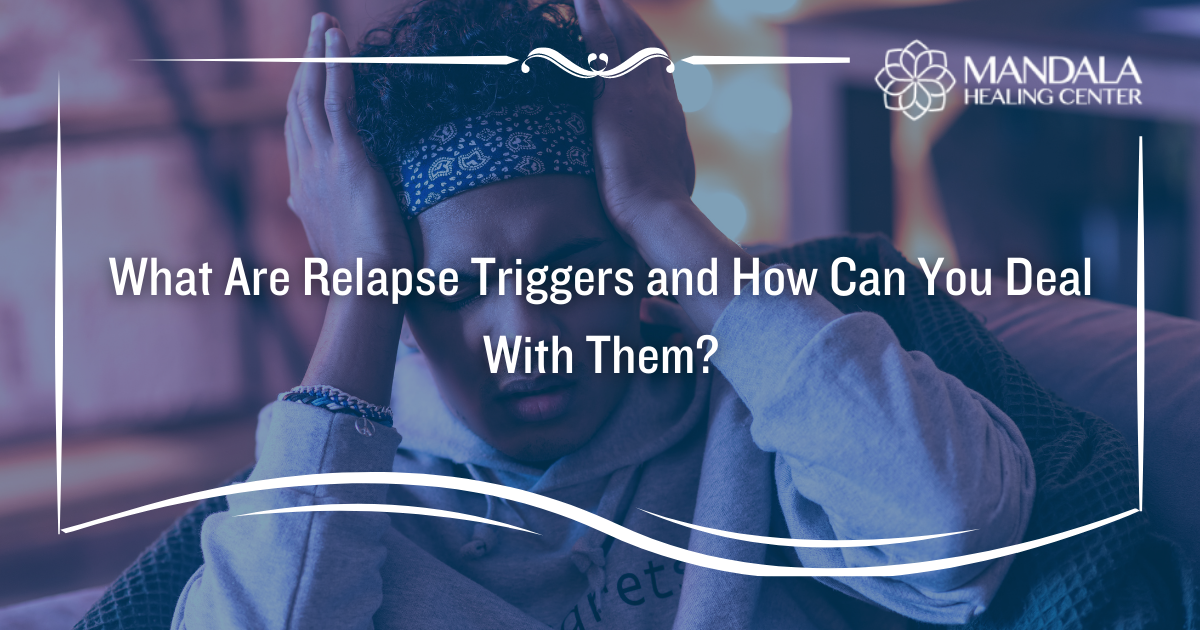Addiction is a lifelong condition that can affect every aspect of a person’s life. Without treatment, people may face many challenging consequences to their mental and physical health, relationships, and financial health.
Addiction treatment must be comprehensive, and address addiction’s physical, emotional, and environmental aspects. Most people participate in medical and mental health care, education, and holistic treatments. After attending rehab, people must stay active and engaged in addiction recovery.
For many, recovery is not a straight path but a winding journey. Most people in recovery will experience at least one relapse in their lifetime. A relapse occurs when someone in recovery begins to use drugs or alcohol again after a period of abstinence. While relapse is often part of a person’s recovery journey, many people feel discouraged, hopeless, angry, or embarrassed when it occurs. It can feel challenging to get back on track after a relapse.
There are several common relapse triggers. Relapse triggers can build up over time and eventually lead to a relapse. The more you know about what can trigger a relapse, the better able you’ll be at avoiding one.
Identifying Common Relapse Triggers
Everyone has different needs during recovery and unique relapse triggers. However, some common relapse triggers increase the risk of a relapse. Understanding and anticipating them may help you healthily deal with them so you can prevent relapse.
Boredom
Some aspects of life in recovery are surprising or challenging. People discover new ways to spend time, develop new relationships, and find new outlets for their newfound energy. But as you adjust to your new, healthy lifestyle, you may find that life comes at a slower pace–especially compared to what life was like when you were actively abusing substances. Many people find that boredom can be a trigger in addiction recovery.
Dealing with boredom: To combat boredom in recovery, you must fill your time with activities. Exercise, volunteering, new hobbies, and socializing can keep you from succumbing to boredom. Schedule your days to include a balance of rest, work, chores, and activities.
Special Occasions
Many celebrations and special days involve parties where alcohol is likely to be available. Weddings, birthday parties, anniversaries, holidays, or other special occasions may trigger a relapse if you’re unprepared. You might also have specific, personal days of the year that used to involve abusing drugs or alcohol.
Dealing with special occasions: Don’t leave your sobriety up to chance. Instead, plan to leave a celebration if you feel triggered. Ask a sober friend to go to the party with you. Take active steps to stay focused on recovery. And if you aren’t confident you can stay sober at any event, it’s always better to skip it.
Mental Health Challenges
Whether you have a history of mental illness or have developed symptoms during recovery, it is essential to get support and treatment to protect your sobriety. Untreated symptoms of mental illness may increase your likelihood of relapse.
Dealing with mental health challenges: If you have new mental health symptoms, let your doctor know so they can help you manage them. If you are already being treated for mental illness, schedule regular appointments with your medical provider and take your medications as prescribed. Find the emotional support you need by attending local 12-step meetings, other support groups, and individual therapy.
Relationship Stressors
Addiction often puts a lot of stress on your closest relationships. Some people think their relationships will quickly become healthy again after they finish rehab, but this isn’t usually the case. People in your life may harbor resentment or anxiety that can take time to heal.
Dealing with relationship stressors: Relationship stressors–both old and new–can significantly trigger people in recovery. Addressing any tension or stress within a relationship is crucial instead of simply hoping it will go away. Family or couples counseling can provide the support and guidance people need to sustain healthier, more loving relationships in recovery.
Impulsivity
While some triggers in addiction recovery are deeply-rooted and long-lasting, it can sometimes be challenging to see what leads to a relapse. In some cases, a relapse may occur quickly or impulsively. When people don’t have the skills to stop and think about what they want to do, their impulsive reactions may lead to a relapse.
It can happen quickly–one minute, you feel confident and committed to sobriety, and the next, you’re heading down an old, unhealthy path that ends in substance abuse. To avoid an impulsive relapse, think about the acronym HALT. This stands for:
- Hungry
- Angry
- Lonely
- Tired
Dealing with HALT: Before making an important decision–including using drugs or alcohol–take a minute to check in with your physical and emotional states. If you feel hungry, angry, lonely, or tired, take steps to manage these feelings before making a decision you will likely regret later.
Identifying your relapse triggers and taking steps to manage them is essential. While you may begin this important work during addiction treatment, you must create and stick to an aftercare plan to keep you active and engaged in recovery for the rest of your life.
Get Help Now
Going beyond the conventional approach of detoxification, patients at the Mandala Healing Center are inspired to fully heal in an environment designed to nourish their entire being. We are committed to treating each person as a whole, integrating a healthy lifestyle that will help our patients truly heal from the inside out.
For more information on managing triggers in addiction recovery or starting an addiction treatment program, contact the Mandala Healing Center specialists today.












